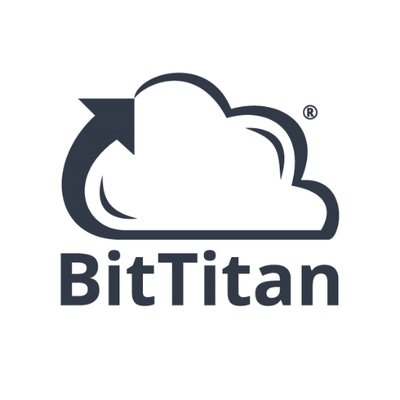The healthcare industry has experienced significant technological advancements in recent years, particularly in the development of custom medical software solutions. Custom healthcare software is designed to meet the specific needs and workflows of medical practices, hospitals, laboratories, and other healthcare organizations. Investing in customized clinical, administrative, and analytics solutions can enhance efficiency, productivity, and patient care.
As value-based care and preventative health gain momentum, healthcare providers require agile tools to manage population health, enable precision medicine, and meet regulatory compliance requirements. According to Empeek’s team, some of the latest technologies making an impact include artificial intelligence, mHealth apps, wearables, blockchain, remote patient monitoring, and advanced data analytics.
So, what are the key innovations and benefits driving the demand for custom health services software development today? Let’s explore them.
1. Optimizing Clinical Workflows: Every healthcare organization has unique systems, processes, protocols, and objectives. Generic off-the-shelf software often fails to meet specialized workflow needs. Custom solutions can integrate seamlessly with existing EHR infrastructure and capture process nuances to help clinicians work smarter. Intuitive clinical software with built-in best practice alerts and templates enhances patient encounters, diagnosis, treatment planning, referrals, and care transitions. Patient portals, remote monitoring apps, and wearables also engage patients in shared decision-making.
2. Improving Operational Efficiency: Administrative and operational inefficiencies continue to plague healthcare. Recent surveys have shown that clinicians spend nearly twice as much time on EHR data entry than on direct patient care. Custom software can connect previously disconnected systems, eliminating duplicative data entry and paperwork. This allows staff to spend more time with patients rather than screens. Automating mundane tasks also reduces errors that undermine productivity and revenue. Built-in analytics measure key performance indicators (KPIs) in real-time, identifying gaps and opportunities for improvement. Accurate operational benchmarking ensures profitability in the transition to value-based reimbursement models.
3. Advancing Personalized Medicine: Mass patient management is giving way to highly customized, analytics-based medicine. Researchers now understand how genetics, environment, lifestyle factors, and social determinants impact diseases differently across patient subpopulations. This requires smarter software to capture multidimensional data for tailored treatments, precision diagnostics, and risk stratification applications. Custom offshore healthcare software development allows the integration of evidence-based clinical decision support and the latest medical research into EHR workflows at the point of care. Prescriptive analytics and AI-based tools can match therapies to patients for optimal therapy selections and outcomes.
4. Improving Patient Safety & Care Quality: Medical errors contribute to hundreds of thousands of patient deaths each year. Custom apps can build checks and balances into workflows to enhance patient safety. They embed clinical guidelines in everyday processes, enabling clinicians to make sound decisions easily. Apps that reduce misdiagnoses, adverse drug events, hospital readmissions, and healthcare-acquired infections have saved many lives. Real-time warnings for critical, abnormal lab values or changes in clinical status also prompt timely interventions before conditions spiral out of control. Preventative care and proactive population health management help minimize errors and life-threatening events.
5. Driving Public Health & Research Goals: Custom software also advances public health objectives. Analytics can identify community disease hot spots for targeted intervention campaigns. They fuel clinical trials by matching patients to experimental therapies faster. Public health apps track epidemics, model disease spread, predict outbreaks, and manage disaster or bioterrorism responses. Healthcare and government agencies rely on custom development for specialized population data analysis needs across programs, leading to policies addressing broader socioeconomic barriers to community well-being over the long term.
6. Meeting Compliance Mandates: Compliance updates are unavoidable and can disrupt workflows. Failure to meet quality reporting and meaningful use timelines can result in penalties. Custom software helps healthcare organizations comply with perpetual mandates and minimize revenue losses. Solutions come preloaded with the latest code sets, templates, and measure calculation logic. Automatic data validation checks reduce errors that lead to inaccurate quality measure submissions or claims denials. Real-time analytics also identify problem areas early. Ongoing compliance is sustainable without the high software upgrade costs and implementation headaches.
The advantages driving the demand for custom medical software are evident. The next challenge lies in approaching development for optimal clinical and financial return on investment.
To achieve success in custom medical software projects, healthcare organizations should seek a development company that aligns with their long-term strategic goals. Close collaboration and interoperability testing between IT and clinical end users can help achieve stakeholder buy-in. Future-proof architecture that maximizes existing IT and infrastructural investments is desirable, along with cloud-based solutions for easy scaling, upgrades, and accessibility. React Native, MongoDB, and microservices enable flexibility to refresh apps through over-the-air updates.
Specialized healthcare technology consultants can facilitate success from the planning phase onwards. Their expertise in medical domains, combined with niche IT competencies, can lead to impactful human-centered design. An iterative agile approach allows for refinement based on real-world testing feedback.
Robust cybersecurity protections are essential, given the prevalence of data breaches. HIPAA technical safeguards and compliance should be integral to the architecture from the beginning to avoid penalties.
Lastly, healthcare enterprises desire custom applications that can interface with third-party population health and patient engagement tools. Scale, stability, and reliability are crucial for handling large data loads, complex analytics, and ensuring uptime. Integration, testing, training, and maintenance are essential for a smooth launch and sustained ROI.
The next wave of innovation in healthcare technology promises even more expansive goals, including curing diseases, reversing climate change, enhancing accessibility and affordability, and protecting global public health. Resilient systems that facilitate data sharing and actionable insights at lightning speed will be crucial.
Ultimately, technology trends that empower patients and providers with knowledge have the potential to reduce discrimination, build healthier societies, sustain planetary resources, and save more lives. Custom clinical software development makes personalized, predictive, and preventative precision healthcare possible. The only limitations are our imagination and vision for what is possible.
Source link






















